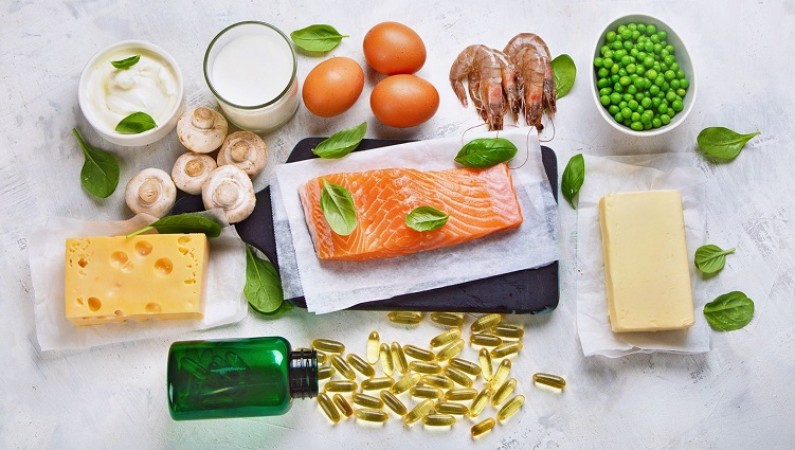
Vitamin D is a crucial nutrient that plays a significant role in supporting the body's immune system. However, a substantial number of individuals suffer from a deficiency in this essential vitamin, leading to various health complications. Recent reports indicate that 76 percent of people in the country are affected by vitamin D deficiency, resulting in symptoms like insomnia, fatigue, muscle weakness, and hair loss. Fortunately, addressing this deficiency can be achieved through dietary measures by incorporating foods rich in vitamin D into one's daily intake.
Understanding the Importance of Vitamin D:
Vitamin D is not just a vitamin but a hormone that supports multiple bodily functions. It plays a pivotal role in maintaining bone health by aiding in calcium absorption, regulating the immune system, reducing inflammation, and promoting cell growth. Moreover, it contributes significantly to maintaining optimal mental health, cardiovascular health, and overall well-being.
Signs and Symptoms of Vitamin D Deficiency:
Recognizing the signs of vitamin D deficiency is crucial for timely intervention. Common symptoms include:
Insomnia: Difficulty falling asleep or staying asleep.
Fatigue: Persistent tiredness and lack of energy.
Muscle Weakness and Pain: Aches and pains, particularly in the arms and legs.
Hair Loss: Thinning of hair or experiencing excessive hair shedding.
Foods Rich in Vitamin D:
Incorporating vitamin D-rich foods into your diet is an effective way to combat deficiency and promote overall health. Some of the best sources include:
Fatty Fish: Salmon, mackerel, trout, and sardines are excellent sources of vitamin D.
Egg Yolks: Egg yolks contain vitamin D, making them a convenient addition to various dishes.
Fortified Foods: Many foods like cereals, milk, and orange juice are often fortified with vitamin D.
Cod Liver Oil: A potent source of vitamin D, cod liver oil can be taken as a supplement.
Mushrooms: Certain mushrooms, like shiitake and portobello, contain vitamin D, especially when exposed to sunlight during growth.
Supplementation and Sun Exposure:
In addition to dietary sources, supplementation and moderate sun exposure can help address vitamin D deficiencies. Supplements can provide a concentrated dose of the vitamin, especially for individuals who may have limited access to sunlight due to lifestyle or environmental factors. However, it's crucial to consult a healthcare professional before starting any supplementation regimen.
Vitamin D deficiency poses significant health risks, impacting immunity, bone health, and overall well-being. Recognizing the symptoms and incorporating vitamin D-rich foods into your diet can help combat deficiencies and promote a healthier lifestyle. Additionally, consulting with a healthcare provider for personalized advice on supplementation or lifestyle changes is advisable to ensure adequate vitamin D levels and overall health.
Read More:
Mastering Stress: Effective Techniques to Manage and Reduce Daily Stress
Try These Natural Remedies for Acne, Dark Spots, Blemishes, and More for Radiant Skin